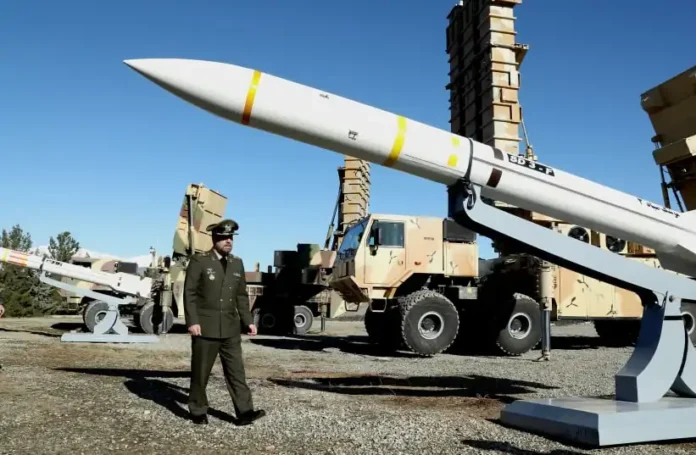Iran is reportedly advancing its secret nuclear weapons program, bringing it closer to the capability of building a nuclear bomb, according to an exclusive report published on Wednesday by Iran International.
The report, citing Iranian officials, reveals significant strides in the Islamic Republic’s nuclear ambitions, raising alarm among international observers.
Three independent sources in Iran, who spoke on condition of anonymity due to the sensitivity of the information, disclosed that Iran has made considerable progress in its nuclear program.
This progress includes major changes within the Organization of Defensive Innovation and Research (SPND), the continued leadership of Mohammad Eslami at the Atomic Energy Organization of Iran, and the resumption of tests aimed at producing nuclear bomb detonators.
For years, U.S. intelligence agencies had maintained that Iran was not engaged in key activities necessary to develop a testable nuclear device.
However, the Director of National Intelligence’s 2024 report, released in July, signaled a shift in this assessment. The report noted that Iran has undertaken activities that position it more favorably to produce a nuclear device if it decides to do so.
The restructuring of SPND, as reported, has been a significant development. The Iranian Parliament recently approved a bill granting SPND financial independence and exempting it from oversight by the National Audit Office.
This move provides SPND with greater autonomy, allowing it to continue its work on nuclear detonators under the supervision of Supreme Leader Ayatollah Ali Khamenei.
On January 20, the Islamic Revolutionary Guard Corps (IRGC) launched a satellite using a solid-fuel, three-stage carrier. This action elicited criticism from Germany, Britain, and France due to concerns over the use of long-range ballistic missile technology.
The satellite launch is seen as a demonstration of Iran’s advanced missile capabilities, further intensifying fears about its nuclear ambitions.
Since the U.S. withdrawal from the Joint Comprehensive Plan of Action (JCPOA), Iran has significantly ramped up its uranium enrichment activities.
Enrichment levels have increased to 60%, resulting in the accumulation of enough material to potentially produce multiple nuclear bombs within a short timeframe.
This heightened enrichment activity underscores Iran’s departure from its commitments under the JCPOA and its advancement toward nuclear weapon capability.
The report highlights the continued involvement of Saeed Borji, an explosives and metals expert associated with the Iranian Defense Ministry, in the development of nuclear detonators. Borji, along with other key figures, remains integral to Tehran’s nuclear weapons program.
The program is currently overseen by General Reza Mozaffarinia, the head of SPND, who is responsible for ensuring the progress of Iran’s nuclear objectives.
The escalating developments come at a time of heightened tension between Iran and the international community.
The international response to Iran’s nuclear advancements has been mixed, with some countries expressing deep concerns over the potential implications for regional and global security.
The report’s revelations about Iran’s progress in its nuclear program have intensified calls for renewed diplomatic efforts and negotiations to address the growing threat.
The implications of Iran’s nuclear ambitions extend beyond regional security. The prospect of Iran developing nuclear weapons has far-reaching consequences for global non-proliferation efforts and international stability.
The international community faces a critical juncture in addressing Iran’s nuclear program, balancing diplomatic engagement with measures to prevent the proliferation of nuclear weapons.
As the situation continues to evolve, the international community will need to remain vigilant and proactive in addressing the challenges posed by Iran’s nuclear ambitions.
The unfolding developments underscore the importance of sustained diplomatic efforts and international cooperation to mitigate the risks associated with Iran’s secret nuclear weapons program.
The coming months will likely see intensified scrutiny of Iran’s nuclear activities, with stakeholders closely monitoring the situation and seeking ways to address the potential threat.
The global response to Iran’s advancements will play a crucial role in shaping the future trajectory of the nuclear landscape and ensuring the stability of international security.

